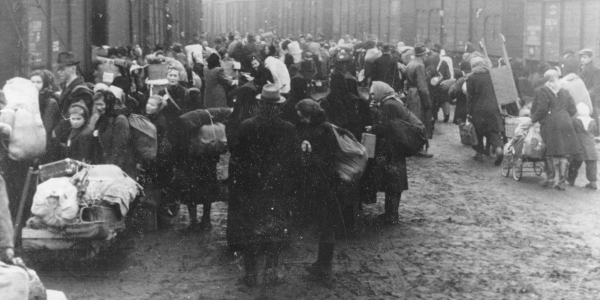For the U.S. and Britain — which not only saw the expulsions as necessary but helped organize them — it taints the image of World War II as “a good war” fought to protect Western humanism against brutal fascism, Douglas said.

It was ethnic cleansing on a scale never seen before. As many as 14 million people, mainly women and children, were forcibly removed from their homes and deported to a country devastated and demoralized by war.
More than 500,000 Germans died in the post-World War II expulsions from eastern Europe. Yet the world had largely forgotten this manmade tragedy until the Irish historian R. M. Douglas (the R. stands for Ray), a professor at Colgate University in New York, published “Orderly and Humane.”
Nearly 70 years after the event, it is the first comprehensive academic study of the episode and has been welcomed in Germany, where discussion of the expulsions is still a political hot potato in relations with its eastern neighbors.
“I tried for a very long time, as long as I possibly could, not to write this book,” Douglas said in an interview in Berlin, where he was promoting the German translation. “I knew what a lot of work it was, and how sensitive it was.”
The 10 years of writing and research that followed reveal the expulsions were anything but “orderly and humane” — the words used by the U.S., Britain and the Soviet Union in the 1945 Potsdam Agreement, which ordered this mass exodus.
[…]















